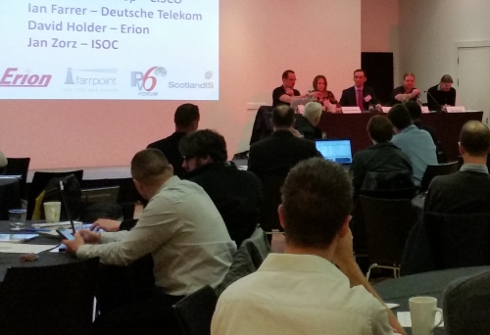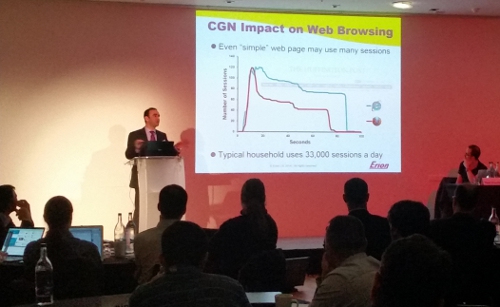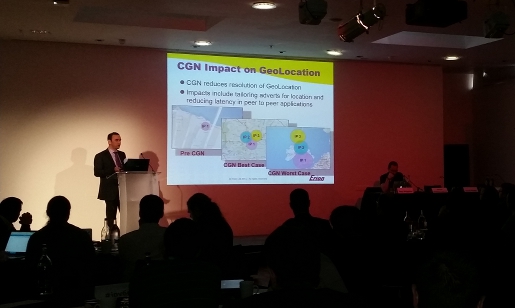Since 2008 Erion has been taking occasional snapshots of the state of IPv6 in the UK. Today we report the latest measurements for 2015. Our tools test whether organisations have deployed IPv6 on their names servers, email servers and web servers.
Most maintainers of IPv6 statistics use similar tests. Typically they choose the organisations to test using lists of popular web-sites, such as the Alexa list. This is approach is extremely useful as it provides figures for the web-sites that attract the most visitors. These sites are assumed to be important because they have a large number of visitors. This seems a reasonable approach. However, some organisations that important to a country or even globally may not attract huge volumes of visitors simply because their web-site is not a major component of their business. For this reason our approach is a little different. We are interested in the state not just of organisations that have a large number of visitors but rather in organisations that are significant regardless of how many visitors their web-sites receive. We focus on two types of organisation, business organisations and government organisations.
For businesses we measure those organisations that are on the FTSE100 list. For the UK Government we measure all government domain names and the domain names of all UK schools. These results provide a different view from the results derived from the Alexa list (or similar). For comparative purposes we also test UK domains in the top one million domains provided by Alexa. An additional benefit of doing this is to compare our sample size of over 18,000 domains with the 500 sample size used by some other producers of IPv6 statistics. Again for comparative purposes we measure the top 100 Fortune500 companies too.
The Results
2015 IPv6 Statistics for FTSE100 Companies
- 24% of name servers are IPv6 enabled
- 7% of mail servers are IPv6 enabled
- 0% of web servers are IPv6 enabled
2015 IPv6 Statistics for UK Government
- 15.7% of name servers are IPv6 enabled
- 5.9% of mail servers are IPv6 enabled
- 0.6% of web servers are IPv6 enabled
2015 IPv6 Statistics for UK Schools
- 8.5% of name servers are IPv6 enabled
- 5.0% of mail servers are IPv6 enabled
- 5.8% of web servers are IPv6 enabled
2015 UK Top Domains from Alexa Top Million List
- 24.8% of name servers are IPv6 enabled
- 13.2% of mail servers are IPv6 enabled
- 5.0% of web servers are IPv6 enabled
2015 Top 100 Fortune500 Companies
- 35% of name servers are IPv6 enabled
- 3% of mail servers are IPv6 enabled
- 4% of web servers are IPv6 enabled
Discussion
What do these figures tell us?
In each set of results, the percentage of IPv6-enabled name servers is higher than that for mail servers and web servers. Additionally most result sets also show that there is a higher percentage of mail servers IPv6 enabled than web servers.
Why is this? The primary reason that a greater percentage of name servers are IPv6 enabled is because it is often technically easier to enable name servers for IPv6 than mail or web servers. The higher percentage of mail servers than web servers that are IPv6 enabled is due to the fact that many organisations use third-party mail services that are common amongst a number of organisations. These are typically IPv6-enabled. This inflates the results for mail servers as we are measuring the same IPv6 enabled mail servers again and again across different organisations.
As noted at the start of this post, sample size has an effect on results. When others restricted their measurements to the top 500 Alexa web-sites in the UK the percentage of IPv6 enabled web-sites is typically about 46%. This is significantly higher than the 5% that we measured for a sample of over 18,000 domains. An initial reaction might be to conclude that the smaller sample size is not a good indicator of IPv6 deployment status. However, the top 500 Alexa list contains sites that are massively more significant in terms of Internet traffic than the remaining 18,000. So in a sense their importance should be considered in the results. Still we think that a more meaningful measure of IPv6 deployment has to include a greater sample of sites as it is not the size of a site that eventually matters it is the percentage of the whole Internet that is IPv6 enabled. World-wide, of the total top one million Alexa domains, almost 6% are IPv6 enabled.
Where does this leave us for the UK figures?
In this part of the discussion we will ignore the name server and mail server figures; name servers because they are easy to deploy and mail servers because many are operated by a small number of third parties. This leaves the figures for IPv6 enabled web servers which appears to be a more meaningful measure of the true state of IPv6 deployment.
| Sample | IPv6 Enabled Web-Sites |
| Top Alexa One Million Domains | 5.9% |
| UK Domains from Alexa Top Million | 5.0% |
| Top 100 Fortune500 | 4.0% |
| FTSE100 | 0.0% |
| UK Government Domains | 0.6% |
| UK Schools Domains | 5.8% |
The first observation that we can make from all of these figures is that all of the results are an order of magnitude smaller than that obtained with a sample of only the top five hundred web-sites. Generally, the percentage of UK domains from the Alexa top million web-sites that are IPv6-enabled (5%) is not that dissimilar to that for the global top million web-sites (5.9%). The UK figure appears to be in line with global figures.
When we look at the FTSE100 companies we see that none of their main web-sites are IPv6-enabled. In comparison, the top Fortune500 companies have 4% (that is four) web-sites that are IPv6-enabled. This is still a small percentage for top organisations in the commercial arena.
In terms of the UK Government the figures are tiny at only 0.6% for government domains. This compares badly with other nations that have encouraged IPv6 adoption. For example, in the US this figure is 53.3%. Even when compared with the world’s top million web-sites taken from the Alexa list the UK Government’s figure is almost an order of magnitude smaller.
Conclusions
Here are a few conclusions that we can draw from the above figures:
- Sample size can significantly affect IPv6 deployment statistics (e.g. 46% verses 5% for web servers in the UK with a sample of 500 and over 18,000 respectively)
- Third-party services, such as mail handling services, can distort figures (in this example inflating them)
- Top companies, as measured by financial metrics, have order of magnitude fewer public web servers IPv6-enabled, than do top Web services companies
- In 2015, almost all UK Government web-sites are not IPv6-enabled



